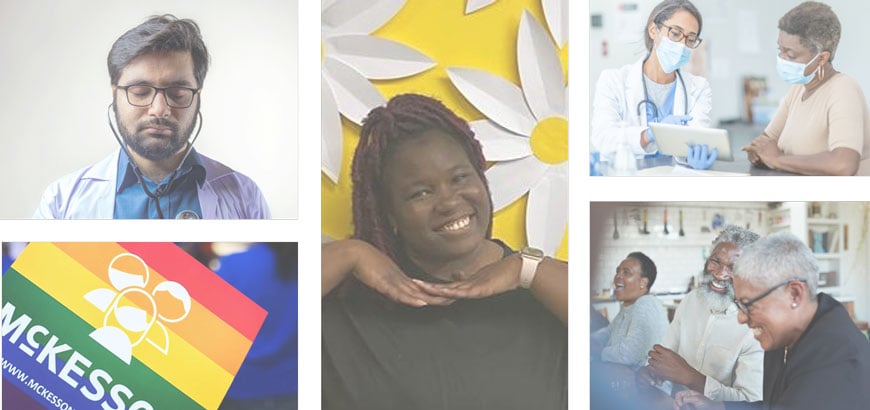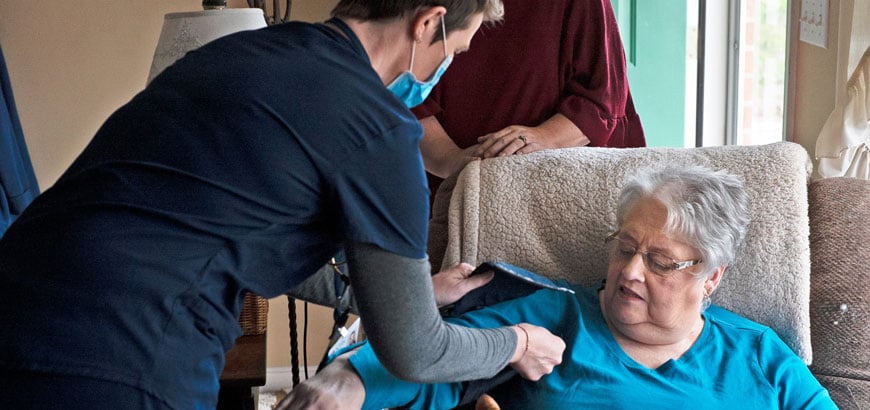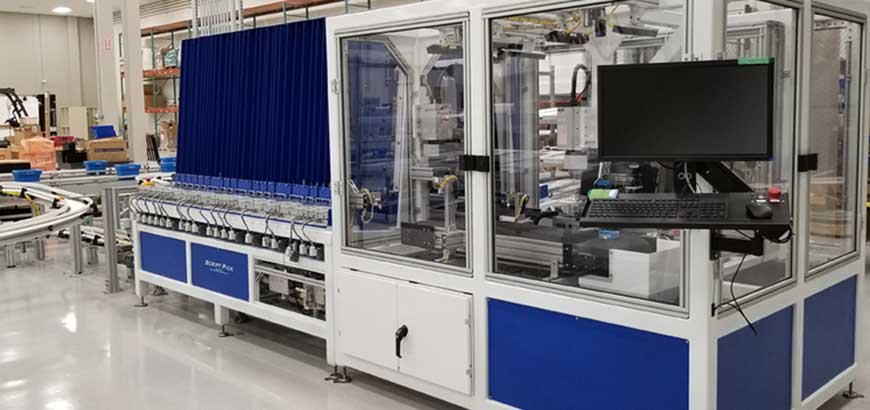Read time: 4.5 minutes
At McKesson, our employees dedicate each day to transforming our vision of improving health outcomes into action. This year, we highlighted many of the ways we’re leading this critical work, from advancing access to better oncology care and spotlighting how pharmacies are serving their communities, to detailing the many ways we’re helping to enable quality care at lower costs.
As we reflect on our big moments in 2022, we invite you to check out our top stories from the past year.
Using Data to Bring Hope to Patients
 Where do healthcare disparities exist in cancer care?
Where do healthcare disparities exist in cancer care?
That’s the question Ontada and The US Oncology Network (The Network) aimed to explore with the Health Outcomes Powered by Evidence (HOPE)™ Studies program.
“The evidence shows that health disparities exist, but we need to better understand what’s happening and why in order to drive change,” says Susan Shiff, PhD, president of Ontada.
Through HOPE Studies, researchers will use deidentified real-world patient data from Ontada’s proprietary electronic health record system – already in use at hundreds of Network practices.
Based on input from healthcare professionals in The Network, the first HOPE Studies sought to address two areas: the impact of race and socioeconomic factors on treatment and testing for women with aggressive triple negative breast cancer, and the impact of socioeconomic barriers to prescribing advanced androgen blockade therapy to men with metastatic prostate cancer. More studies are planned.
5 Women Transforming Healthcare Through Technology
 While telehealth, mobile apps and wearables may come to mind when thinking about technology that improves patient health, countless behind-the-scenes technologies and software applications are playing a tremendous role in accelerating patient health outcomes today – from automated medication distribution and electronic health records to data platforms that enable practitioners to spend less time on administrative tasks and more time with their patients (and, ultimately, help ease clinician burnout).
While telehealth, mobile apps and wearables may come to mind when thinking about technology that improves patient health, countless behind-the-scenes technologies and software applications are playing a tremendous role in accelerating patient health outcomes today – from automated medication distribution and electronic health records to data platforms that enable practitioners to spend less time on administrative tasks and more time with their patients (and, ultimately, help ease clinician burnout).
Meet five women from across McKesson whose work in health technology is significantly impacting the lives of healthcare customers and patients everywhere.
Better Healthcare, Lower Costs
 In the traditional healthcare payment model, a patient visits a provider who then bills for the specific services rendered. Each additional service – perhaps another checkup, scan, or infusion – generates another itemized bill. While this fee-for-service model might seem logical enough, it may result in more tests and other billable services with limited value instead of emphasizing what matters most: providing patients with the best possible care.
In the traditional healthcare payment model, a patient visits a provider who then bills for the specific services rendered. Each additional service – perhaps another checkup, scan, or infusion – generates another itemized bill. While this fee-for-service model might seem logical enough, it may result in more tests and other billable services with limited value instead of emphasizing what matters most: providing patients with the best possible care.
That’s where value-based care comes in. Six years ago, 14 practices in The Network began participating in the Oncology Care Model (OCM), a Centers for Medicare & Medicaid Innovation pilot supporting higher quality, more coordinated care for the same or lower cost.
Through OCM, these practices modified protocols and roles, provided 24/7 access to care, expanded patient navigation tools, followed nationally recognized treatment guidelines, and integrated mental health, nutrition counseling, and other services into their offices.
Ultimately, this value-based approach has proven valuable in both patient care and financial savings.
“Value-based care is about aligning treatment with patient goals,” says Lalan Wilfong, MD, vice president of payer relations and practice transformation for The Network, “which entails providing the best treatment for the patient at the lowest cost in terms of toxicity as well as price.”
“We Take Care of Each Other at McKesson”
 In 2019, Brandy Hulsey, senior director of corporate accounts payable at McKesson, began the fight of her life – literally – against malignant stage IIIC breast cancer. Treatment through Texas Oncology, a practice in The Network, involved biopsies, scans, five months of brutal chemotherapy, a double mastectomy, two months of daily radiation, and breast reconstruction surgery.
In 2019, Brandy Hulsey, senior director of corporate accounts payable at McKesson, began the fight of her life – literally – against malignant stage IIIC breast cancer. Treatment through Texas Oncology, a practice in The Network, involved biopsies, scans, five months of brutal chemotherapy, a double mastectomy, two months of daily radiation, and breast reconstruction surgery.
In addition to the top-quality care she valued at Texas Oncology, Brandy appreciated the outpouring of support and compassion she and her family received from her McKesson colleagues nationwide.
Today, more than two years after she was declared cancer-free, Brandy faces her lifelong disease management journey with her trademark hope. She is also a mentor through the McKesson Cause Network, an employee group that supports those affected by cancer.
“We take care of each other at McKesson, and everyone I’ve interacted with has supported my family and me as though we are part of their own family,” she says. “It’s humbling and amazing to know that people at this international company are invested in my journey. Everyone at McKesson made this walk easier for me, my husband, and my daughter, and for that, I will forever be grateful.”
Three Trends Driving Community Oncology in 2022
 As the community oncology landscape continues to transform and trends continue to emerge, McKesson is helping critical sites of oncology care succeed.
As the community oncology landscape continues to transform and trends continue to emerge, McKesson is helping critical sites of oncology care succeed.
Lasting Impact of COVID-19. Through 2020, as patients skipped screenings and many hospitals struggled with staffing and personal protective equipment shortages that delayed or halted screenings, new cancer diagnoses declined by 13 to 23%. Despite the many challenges, community oncologists in The Network continued providing quality care when patients needed it most and worked with patients to meet them where they felt most comfortable, whether that was in the clinic or through telemedicine visits.
Growing Demand for Telemedicine Services. As the pandemic accelerated the need for patients to have access to telemedicine, The Network practices increased their use of this technology to achieve continuity of care and even improve health equity for those living in rural and underserved communities.
Booming Precision Medicine Market. In precision medicine, genomics – along with a patient’s cancer type and their clinical setting – are factored into a patient’s treatment plan. The Network practices are embracing this alternative to one-size-fits-all approaches to tailor treatments and therapies that minimize unwanted side effects and improve outcomes for patients.




Share
Post
Post
Email